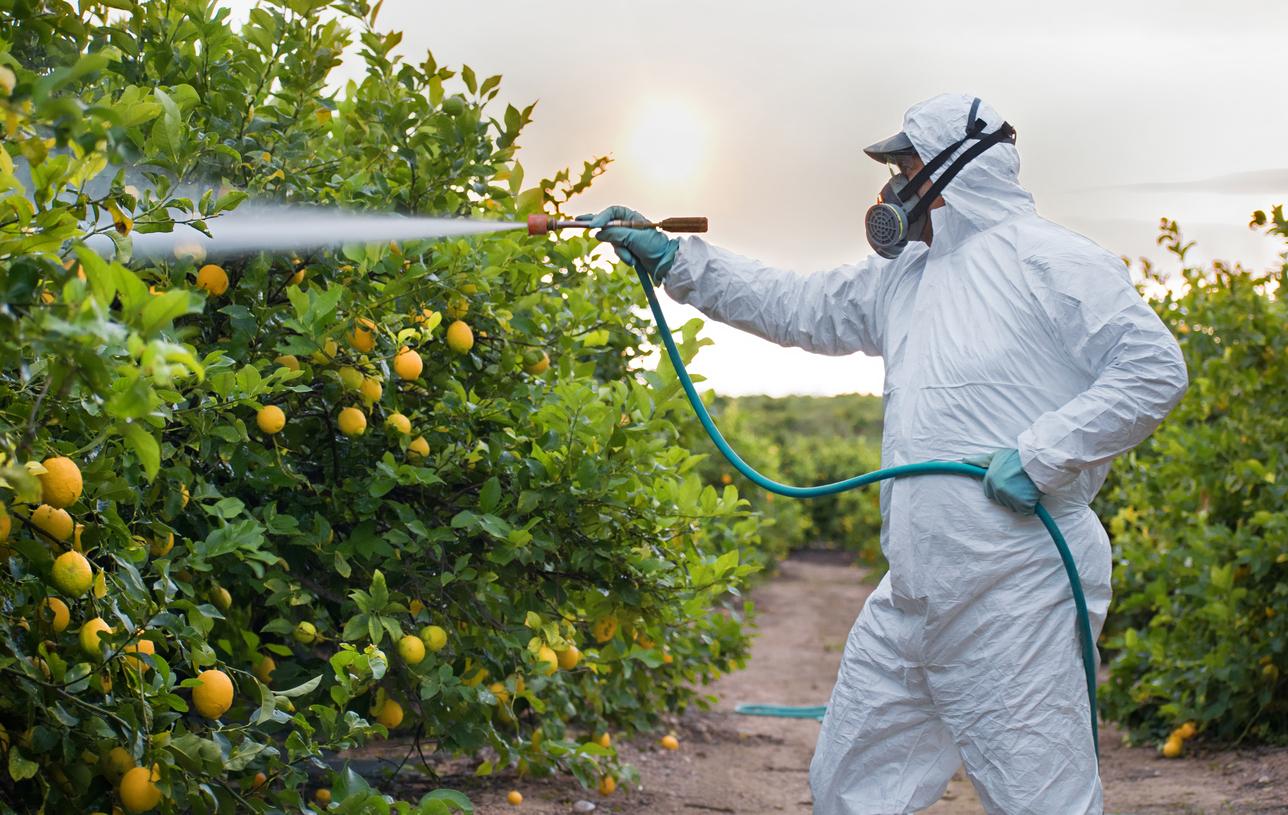A coalition of public health, conservation, and farmworker advocacy groups this week filed a petition urging the Environmental Protection Agency (EPA) to ban use of pesticides that can promote resistance to medically important antibiotics and antifungals.
The petition, filed by the Center for Biological Diversity on behalf of nine other groups, calls for the EPA to ban pesticides containing oxytetracycline and streptomycin, the two most commonly used antibiotics in pesticides. Both antibiotics are also used to treat a variety of human and animal infections and are considered important for human health by the World Health Organization.
Other active ingredients in pesticides targeted in the petition include gentamicin, kasugamycin, ipflufenoquin, and triazole fungicides. Many are closely related to medically important antibiotics and antifungals and can contribute to cross-resistance.
“Research is clear that the use of antibiotics and antifungals as pesticides poses a threat to public health because it contributes to the evolution of pathogens that are resistant to medicine,” the petition states. “Petitioners make this request because of the critical nature of these drugs and drug classes to human and veterinary medicine, along with scientifically established concerns related to increasing resistance and declining efficacy rates as a result of prophylactic and other uses of these antimicrobials outside of the medical field.”
The petition also argues that, beyond the impact on human health, antibiotic exposure can hurt water quality, soil health, and wildlife.
Oxytetracycline, streptomycin used in more than 50 pesticides
Several of the groups that signed on to the petition have been fighting the use of streptomycin and oxytetracycline as pesticides since their use was expanded under the first Trump administration. The EPA approved emergency use of oxytetracycline on citrus trees in Florida in 2016 to combat citrus greening disease, which is caused by a bacterium carried by insects. Since 2005, citrus greening disease has devastated millions of acres of citrus crops.
The EPA then allowed expanded use of oxytetracycline on roughly 700,000 acres of citrus farms in Florida and California in 2018. Streptomycin was authorized for spraying in 2018.
“The expansion of these products really happened during the first Trump administration, so it makes us worried that more is coming down the pike,” Nathan Donley, environmental health science director at the Center for Biological Diversity, told CIDRAP News. “We have no trust that this agency [the EPA] is going to act in the interests of the public.”
According to the petition, approximately 25 pesticides registered by the EPA use streptomycin sulfate, 20 use oxytetracycline hydrochloride, and eight use calcium oxytetracycline. The US Geological Survey estimates that more than 125,000 pounds of the two antibiotics were sprayed on crops in 2018.
Research is clear that the use of antibiotics and antifungals as pesticides poses a threat to public health because it contributes to the evolution of pathogens that are resistant to medicine.
In 2023, the US Court of Appeals for the Ninth Circuit struck down the EPA’s approval of streptomycin for use on citrus crops, saying that it did not satisfy the requirements of the Federal Insecticide, Fungicide, and Rodenticide Act (FIFRA) and Endangered Species Act (ESA). But use of oxytetracycline on citrus crops has continued.
Both antibiotics are also used, in smaller amounts, on other fruit plants, including apple trees. Donley said the concern is that spraying sub-therapeutic levels of these antibiotics as pesticides across tens of thousands of acres could spur the development of resistant bacteria on crops and in the soil that could ultimately find their way into people and cause drug-resistant infections.
The petition cites past research from the Centers for Disease Control and Prevention (CDC) showing that the use of oxytetracycline and streptomycin as pesticides has the potential to select for antibiotic-resistant bacteria in the environment. Those findings were submitted to the EPA in May 2017.
“If the pesticide is not killing the bacteria or the fungus, then there's a greater likelihood that the necessary mutations are going to develop that make those bugs resistant to those medicines,” Donley said. “This kind of supercharges that in a way that I don’t think people appreciate.”
Donley said the petition process is “frustratingly weak” and that the EPA, especially given its current approach to regulating use of chemicals in the environment, might choose not to respond. If it doesn’t, a lawsuit could be the next step.
“We’re kind of playing the long game here,” he said.




















